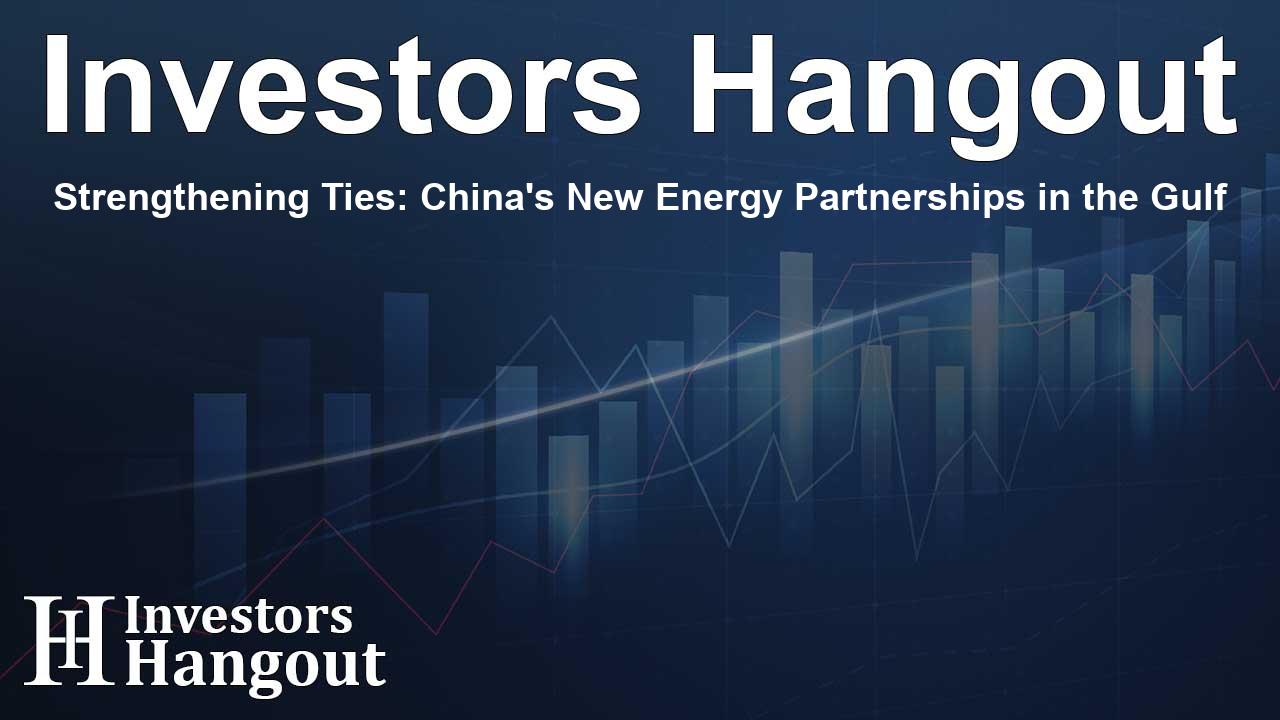Strengthening Ties: China's New Energy Partnerships in the Gulf

China's Premier Strengthens Gulf Relations on Energy
Chinese Premier Li Qiang recently returned from his productive visits to Saudi Arabia and the United Arab Emirates, focused on building deeper economic ties with these influential Gulf nations. The meetings underscored China's commitment to expanding cooperation in vital sectors like new energy, which many analysts regard as essential to the future of the Middle Eastern economy.
Significance of New Energy Cooperation
During discussions, Premier Li emphasized the need for closer collaboration in various fields, particularly in the new energy sector, which he described as crucial for sustainable growth. These sentiments were echoed by analysts who believe that this cooperation can foster new economic opportunities and strengthen bilateral ties.
Building Strategic Partnerships
Li's journey included a significant stop in the United Arab Emirates, where he met with President Sheikh Mohamed bin Zayed Al Nahyan. Together, they pledged to enhance their countries' strategic partnership, focusing on a comprehensive approach to mutual economic development.
In his meetings, Li called for collaborative efforts not only in new energy but also in fields like electric vehicles, high-end manufacturing, biomedicine, and the digital economy. This wide-ranging agenda showcases China's ambition to become a key player in the region's future energy landscape.
Previous Visits and Growing Trade
This trip followed Sheikh Mohamed's earlier state visit to China, where both leaders committed to closer technological and economic collaboration. Currently, data from the Chinese foreign ministry reveals that trade between China and the UAE exploded to a staggering $50 billion in just the first half of the year.
China's Competitive Edge in EVs
One of the key discussions revolved around electric vehicles (EVs), where China stands at the forefront globally. Companies like BYD and Nio have begun operations in the UAE, signaling a strong interest in tapping into this lucrative market. Analysts note that the UAE's establishment of the largest single-site solar power plant, under China's Belt and Road Initiative, aligns perfectly with this growing interest in sustainable technologies.
Benefits of Bilateral Trade
As the trade surplus tilts in favor of China, the record investments from China into the UAE indicate growing economic interdependence. Last year saw a remarkable 16% increase in Chinese investments, which favored both ends with UAE investments in China surging by 120%.
New Energy as a Catalyst for Growth
Li's discussions in Saudi Arabia reaffirmed the importance of cooperation in the petrochemicals and infrastructure sectors, with an eye toward innovative, emerging areas. Experts highlight that China’s leadership in green energy places it in a unique position to offer valuable resources and technology to assist Middle Eastern nations in their sustainable energy transitions.
Strategic Free Trade Agreements
The trip also included key discussions surrounding a potential free trade agreement between China and the Gulf Cooperation Council. This agreement is anticipated to help diversify Gulf states' economies away from fossil fuel reliance, fostering a collaborative business environment that champions quality investments and strategic partnerships.
Conclusion: A New Era of Cooperation
As Premier Li concludes this significant visit, the groundwork laid for deeper ties and enhanced cooperation in new energy and technology is expected to resonate through both China and the Gulf nations. By capitalizing on mutual interests, both parties can look ahead to a promising future marked by innovation, sustainability, and expanded economic horizons.
Frequently Asked Questions
What highlights emerged from Premier Li Qiang's Gulf visit?
Li's visit emphasized fostering deeper economic ties, particularly in new energy, electric vehicles, and high-end manufacturing sectors between China and Gulf nations.
How are China and the UAE collaborating on renewable energy?
They are focusing on electric vehicles and solar energy projects, with significant Chinese investments in the UAE aimed at expanding renewable energy capabilities.
What is the significance of the proposed China-GCC free trade agreement?
The free trade agreement aims to boost economic diversification for Gulf nations and strengthen China's position as a key economic partner in the region.
How does China benefit from its relations with Saudi Arabia and the UAE?
China gains access to critical energy resources while expanding its influence in emerging sectors like new technologies and green energy initiatives.
What role do electric vehicles play in China-Gulf cooperation?
EVs are a strategic focus due to China's dominance in the sector, with partnerships expected to boost both countries' economic performance and technological advancement.
About Investors Hangout
Investors Hangout is a leading online stock forum for financial discussion and learning, offering a wide range of free tools and resources. It draws in traders of all levels, who exchange market knowledge, investigate trading tactics, and keep an eye on industry developments in real time. Featuring financial articles, stock message boards, quotes, charts, company profiles, and live news updates. Through cooperative learning and a wealth of informational resources, it helps users from novices creating their first portfolios to experts honing their techniques. Join Investors Hangout today: https://investorshangout.com/
Disclaimer: The content of this article is solely for general informational purposes only; it does not represent legal, financial, or investment advice. Investors Hangout does not offer financial advice; the author is not a licensed financial advisor. Consult a qualified advisor before making any financial or investment decisions based on this article. The author's interpretation of publicly available data shapes the opinions presented here; as a result, they should not be taken as advice to purchase, sell, or hold any securities mentioned or any other investments. The author does not guarantee the accuracy, completeness, or timeliness of any material, providing it "as is." Information and market conditions may change; past performance is not indicative of future outcomes. If any of the material offered here is inaccurate, please contact us for corrections.